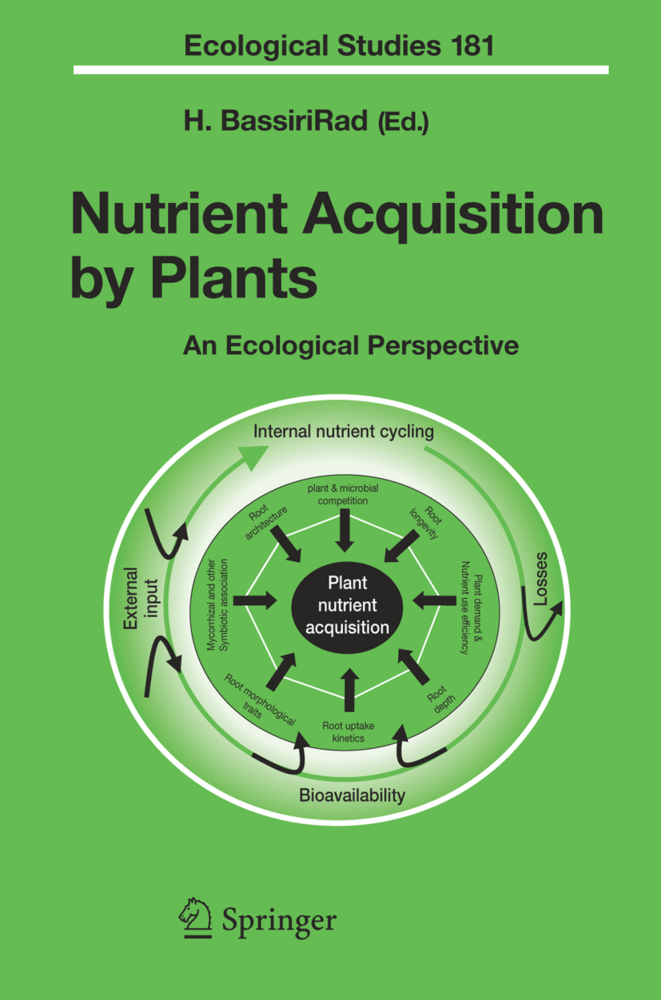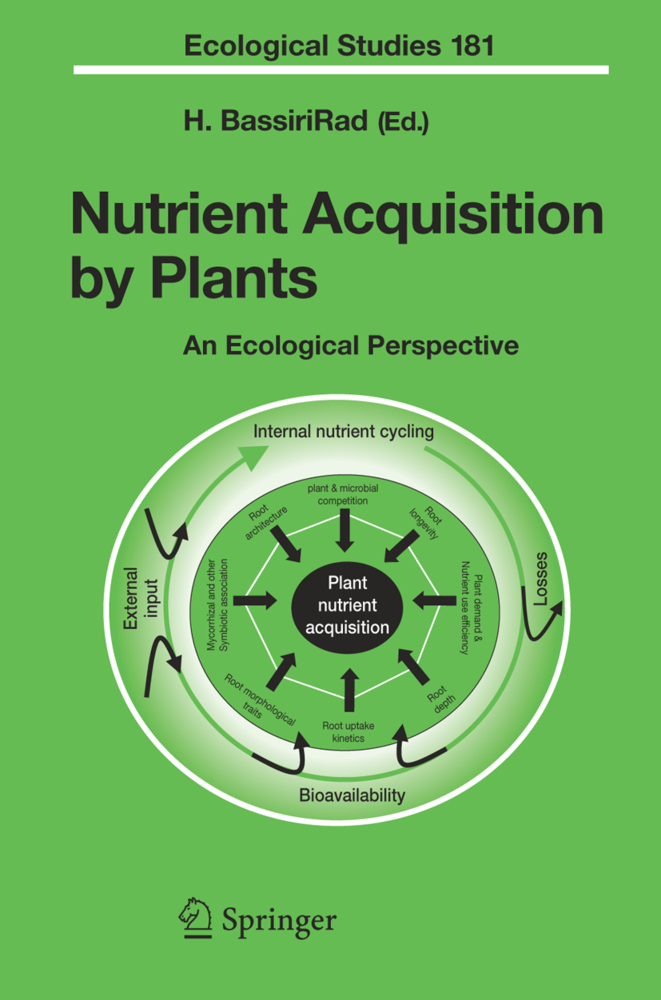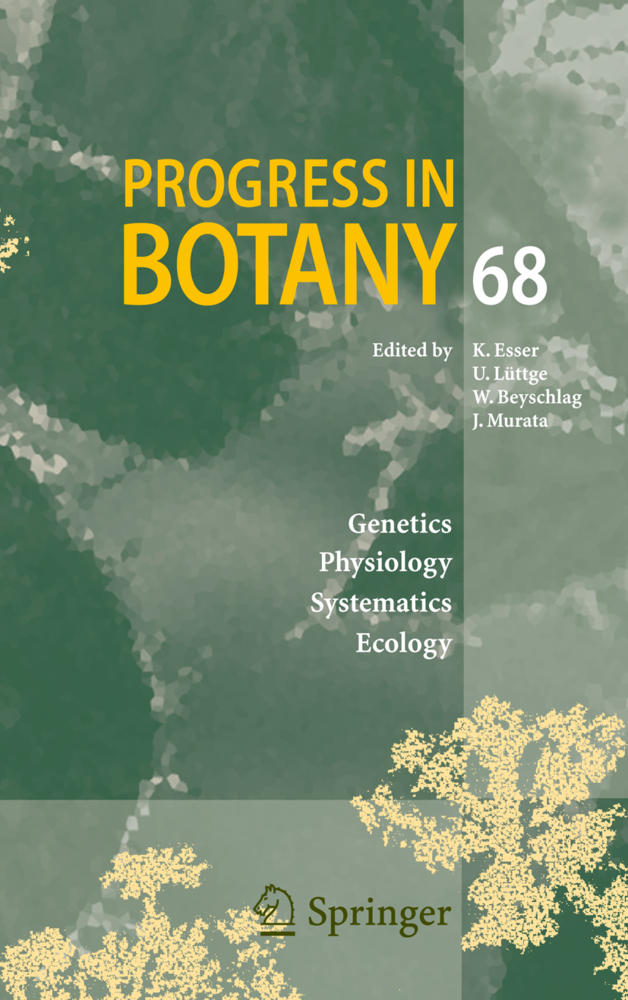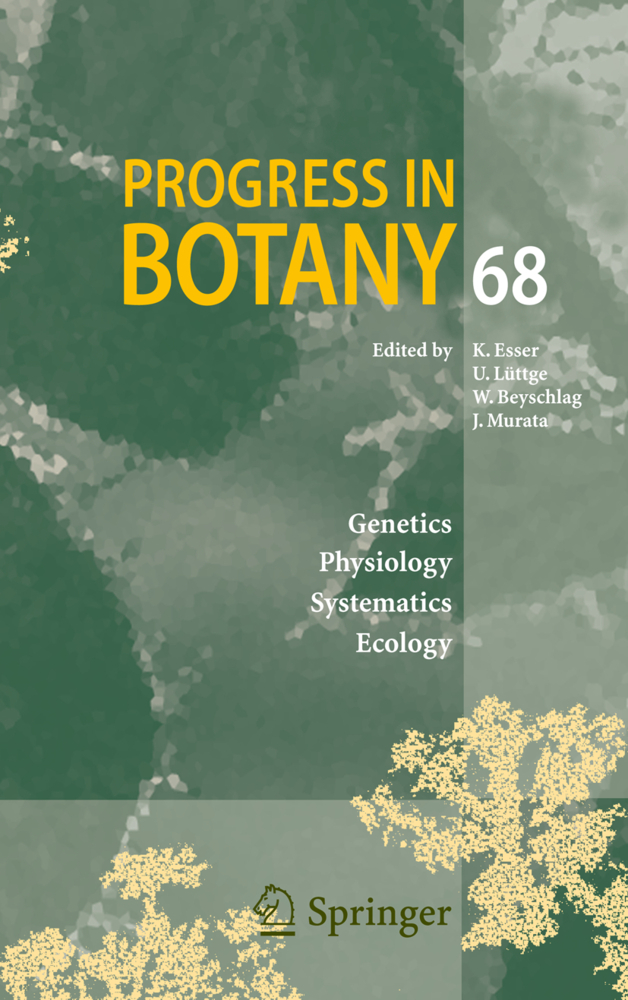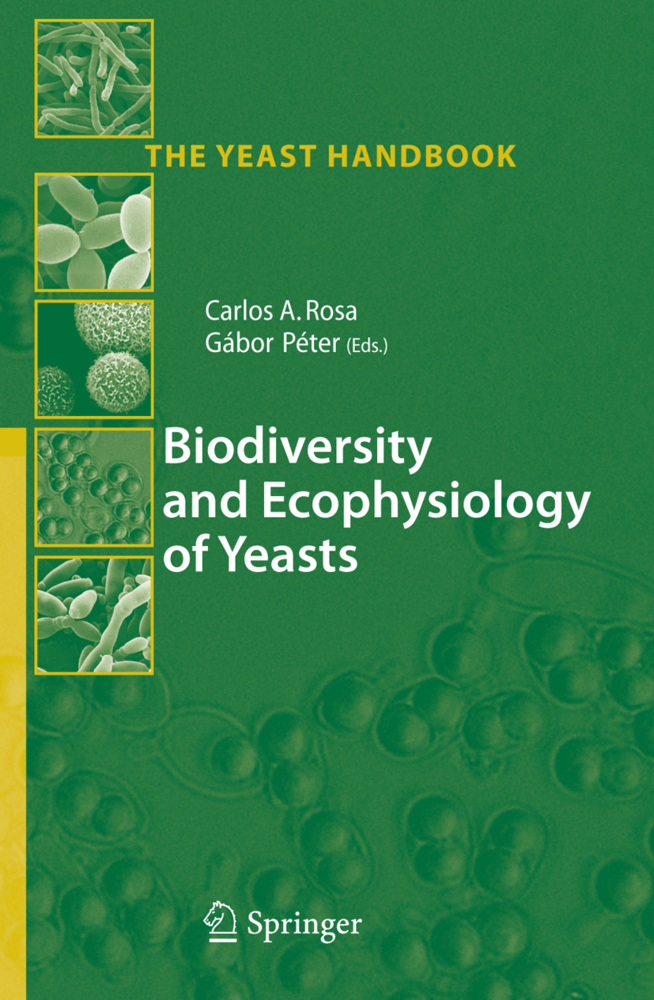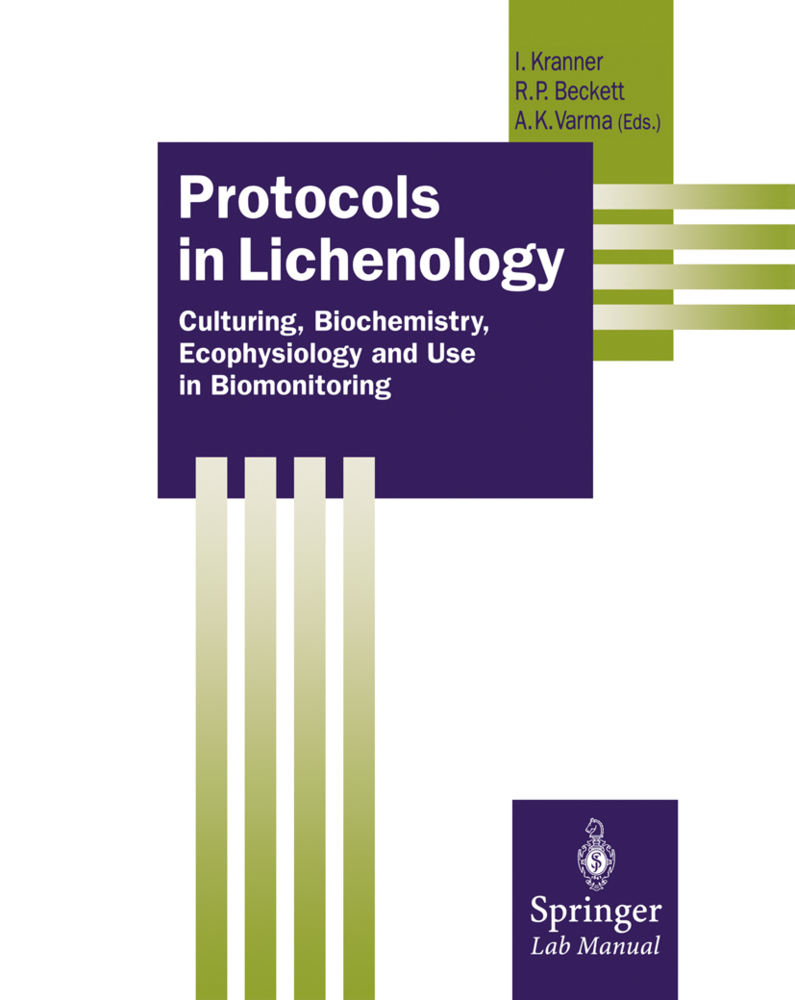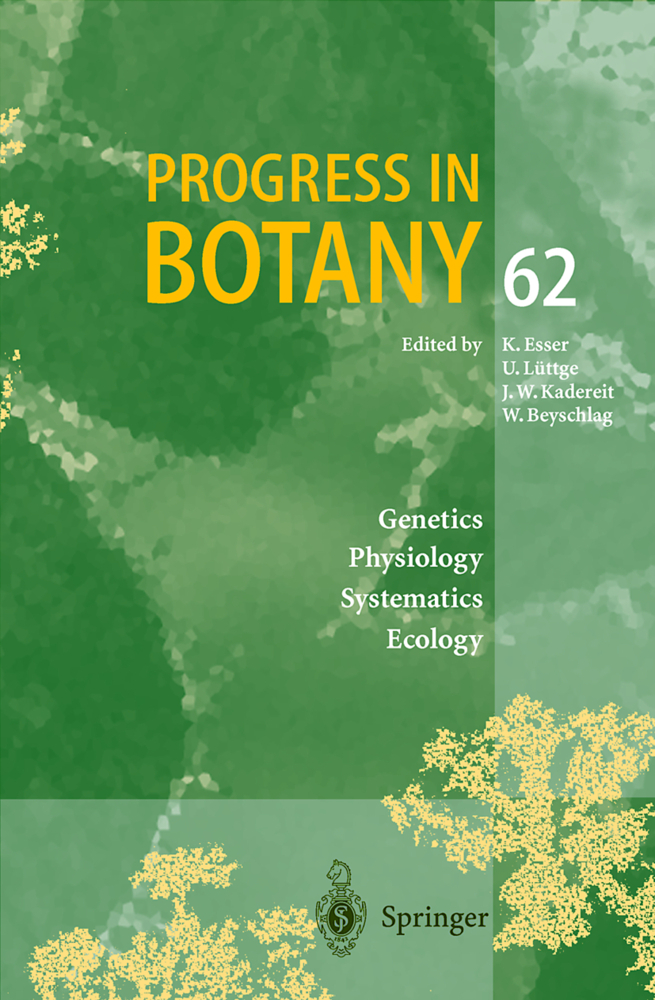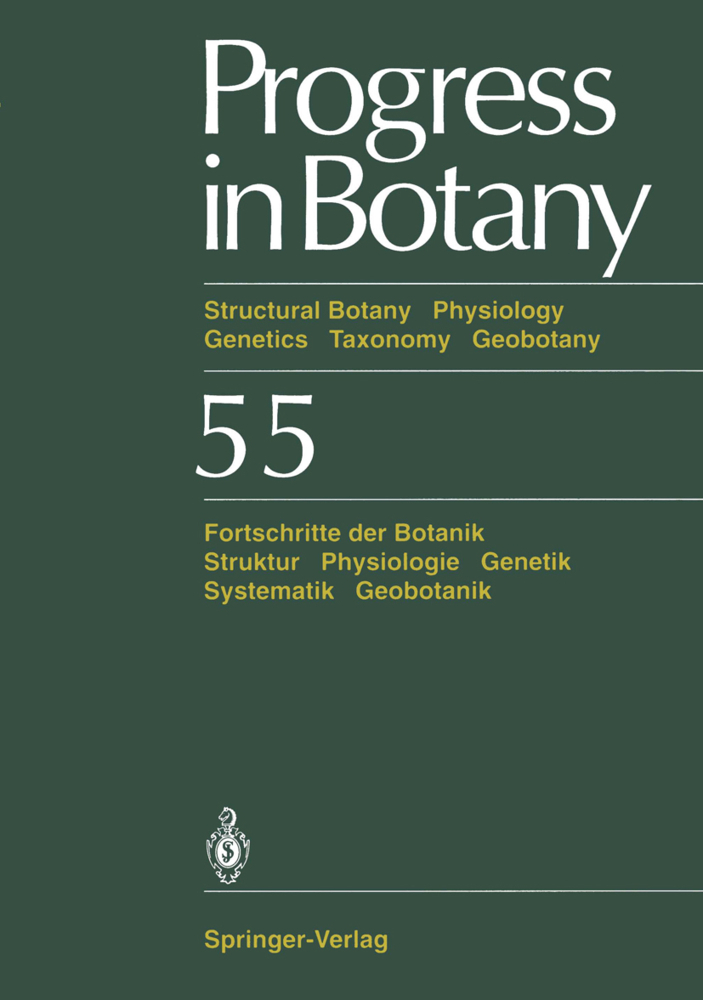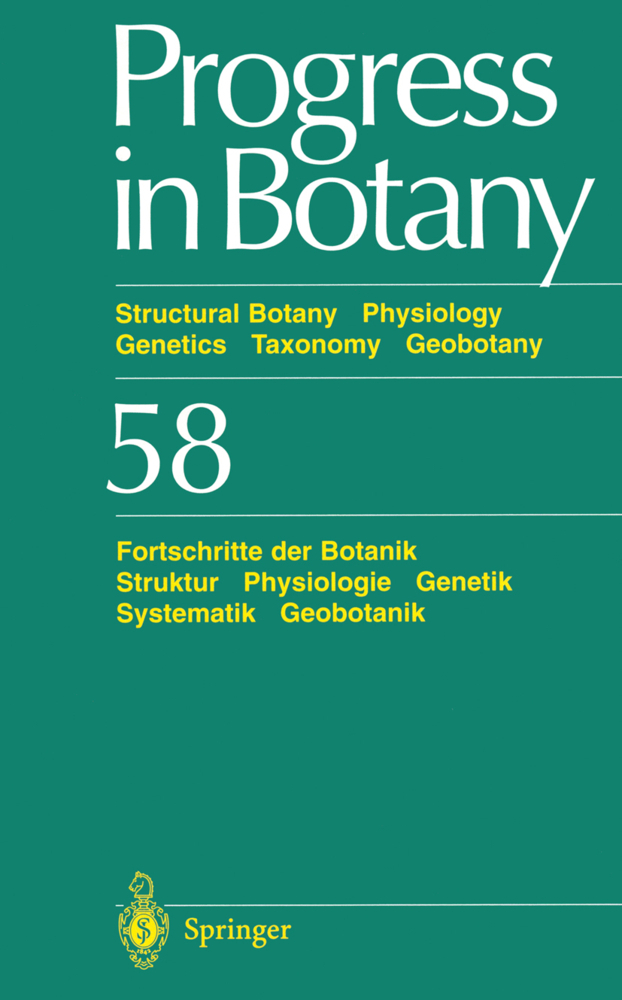Nutrient Acquisition by Plants
Nutrient Acquisition by Plants
Adaptation and evolution of terrestrial plants depend, to a large extent, on their ability to acquire nutrients. This is a modern and integrative treatment of the mechanisms controlling plant nutrient uptake and how plants respond to changes in the environment. The following key topics are covered: soil nutrient bioavailability; root responses to variations in nutrient supply; nitrogen fixation; regulation of nutrient uptake by internal plant demand; root characteristics; kinetics of nutrient uptake; root architecture; life span; mycorrhizae; responses to climate change. This integrated view helps us to understand the mechanisms that govern present-day plant communities and is indispensable in models designed to predict the response of plants to a changing climate.
Soil Factors Affecting Nutrient Bioavailability
Decomposition and Mineralization of Nutrients from Litter and HumusIntegrated Root Responses to Variations in Nutrient Supply
Internal Regulation of Nutrient Uptake by Relative Growth Rate and Nutrient-Use Efficiency
Biological Nitrogen Fixation Associated with Angiosperms in Terrestrial Ecosystems
Homeostatic Processes for the Optimization of Nutrient Absorption: Physiology and Molecular Biology
Root Architecture and Nutrient Acquisition
The Efficiency of Nutrient Acquisition over the Life of a Root
Action and Interaction in the Mycorrhizal Hyphosphere - a Re-evaluation of the Role of Mycorrhizas in Nutrient Acquisition and Plant Ecology
Effects of Soil Temperature on Nutrient Uptake
Nutrient Acquisition of Terrestrial Plants in a Changing Climate
From Molecular Biology to Biogeochemistry: Toward an Integrated View of Plant Nutrient Uptake.
BassiriRad, Hormoz
| ISBN | 978-3-642-06337-4 |
|---|---|
| Artikelnummer | 9783642063374 |
| Medientyp | Buch |
| Copyrightjahr | 2010 |
| Verlag | Springer, Berlin |
| Umfang | XVIII, 348 Seiten |
| Abbildungen | XVIII, 348 p. |
| Sprache | Englisch |

